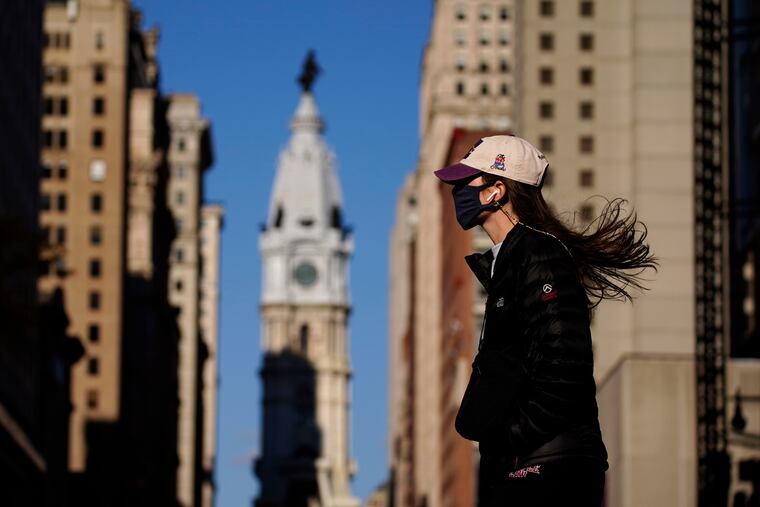COVID-19’s magnitude is hard to comprehend — but we are not powerless | Editorial
It’s up to all of us, including lawmakers, to keep Philly safe from latest COVID surge

New restrictions take effect in Philadelphia Friday as part of the city’s effort to stop the exponential growth of coronavirus cases. Over the past week, Philadelphia has reported an average of more than 900 new COVID-19 cases and six deaths every day — and the numbers are still increasing. According to Public Health Commissioner Thomas Farley, current estimates suggest that without dramatic measures hospitals will surpass capacity and another 700 to 1,400 Philadelphia residents will die before the end of the year — 41 days from now.
Nationally, the coronavirus death toll has exceeded 250,000, a figure unparalleled by any event in generations.
In crafting the new restrictions, Philadelphia has been looking to European countries like France and Germany that managed to reverse a surge in cases without a complete shutdown of the kind imposed in March. The biggest difference between the current restrictions and previous shutdown is that childcare centers and elementary schools are allowed to continue indoor instruction. Retail stores will also remain open, with limited occupancy.
Officials have not been able to trace about half of all cases, indicating that transmission is widespread and occurring everywhere.
The need and timing for the restrictions are heartbreaking. With Thanksgiving next week and December’s holidays just around the corner, many workers and business owners, especially in the restaurant industry, are going to miss paychecks.
» READ MORE: Six-week shutdown could mean a ‘year without Christmas’ for Philly businesses
The burden doesn’t have to be only on Philadelphia. The entire region should join together by imposing similar restrictions to ensure that mitigation efforts are most effective. The virus doesn’t know county (or state) lines and the sacrifices Philadelphians are making should not be undermined by nearby counties.
People angry about these restrictions should direct their anger where it belongs: the failed Republican leadership in Washington that has refused for months to provide critical relief to households, municipalities, and states. They have forced people to make a tradeoff between staying healthy and being able to pay to feed and house their families,.
The General Assembly in Harrisburg is also failing to swiftly disperse funds that are available. In the spring, Pennsylvania received $4.9 billion from the CARES Act — $1 billion of which went directly to the state’s seven largest counties. That left $3.9 billion for the state to allocate.
» READ MORE: As coronavirus cases rise, 800 Bucks County nurses go on strike over ‘dangerous’ staffing levels
At the end of May, as part of the short-term budget, the legislature allocated $2.6 billion of Pennsylvania’s share — leaving $1.3 billion sitting there, with no good answer on why it’s not distributed. Even worse: some of the money that had been allocated hasn’t been fully used. That includes rental assistance funds that the Republican controlled State Senate refused make more accessible.
Now, as the legislature works to finalize another short term budget, and are going use the $1.3 billion dollars to fill revenue shortfalls instead of allocating it to directly assist service providers and businesses that might not survive the surge.
» READ MORE: Pa. lawmakers to use remaining $1.3 billion in coronavirus aid to prop up state budget
The pandemic is global and hard to comprehend in magnitude, but we are not powerless. It’s important to remember there are actions to take: wearing a mask, social distancing, and demanding lawmakers stop stalling and provide relief.